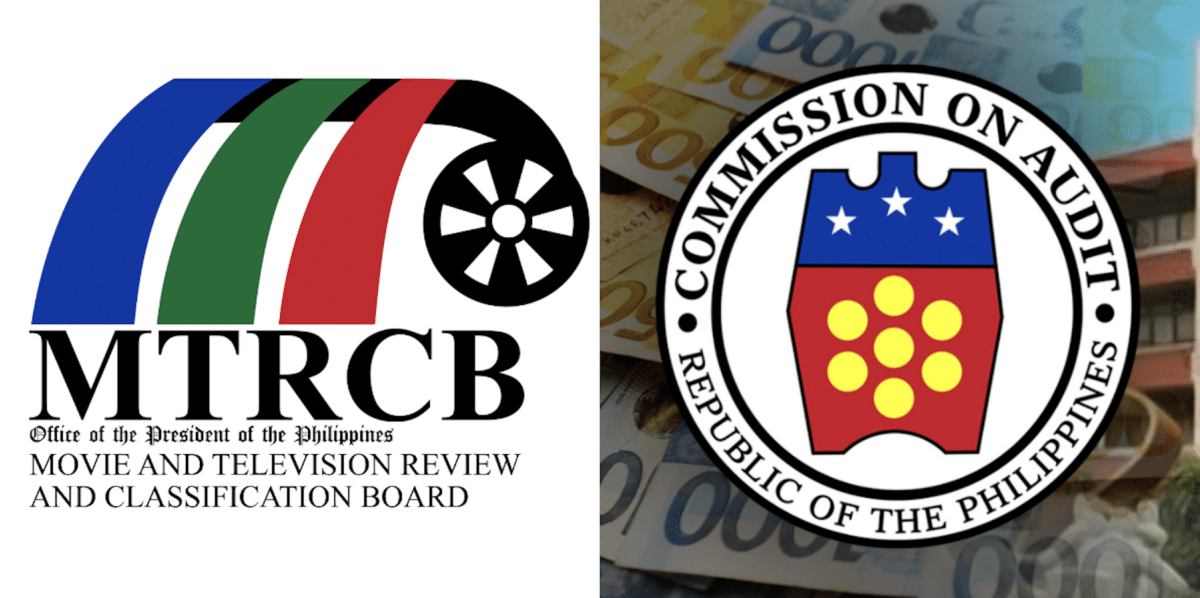
The Movie and Television Review and Classification Board (MTRCB) and The Commission on Audit (COA) logos | Photos: Facebook, MTRCB/INQUIRER file photo
The Movie and Television Review and Classification Board (MTRCB) has issued a clarification after the Commission on Audit (COA) flagged the body for allegedly paying P4.4 million to 15 consultants without the required documents.
In a statement, the agency emphasized that it has already complied with COA’s Audit Observation Memorandum (AOM) as of August 22, 2024, and the findings referenced in the published news report were not yet final at the time.
“The MTRCB submitted the necessary documents prior to the hiring of consultants and the release of payments, in accordance to government rules and regulations. However, the COA required more detailed accomplishment reports and updated curriculum vitae, which we have since provided as of August 22, 2024,” stated the statement signed by Chairperson and Chief Executive Office Lala Sotto.
Operating with 49 plantilla positions and 30 appointive board members, the agency stressed that they were able to review over 255,000 TV programs, films, and related materials in 2023 and over 241,000 as of November 2024, providing context on the role of consultants in fulfilling its mandate.
“To effectively carry out our core mandates and developmental initiatives, we engage consultants to address expertise gaps and support our operations. These consultants are vital to maintaining the quality and efficiency of our services,” it said.
The MTRCB also noted that the hiring of consultants in 2023 was for stakeholder management, not for legal counsel, and therefore did not require approval from the Office of the Solicitor General (OSG).
The agency assured the public that they will ensure full compliance with government rules and regulations moving forward.
“Rest assured that, in 2024 and moving forward, the MTRCB has fully implemented the COA’s findings to strengthen accountability and ensure full compliance with government rules and regulations,” concluded the statement.
In a detailed report, COA flagged MTRCB upon learning that the latter hired consultants and did not submit all required documents as prescribed under the government’s rules for consultancy services, describing it as “casting doubt as to the necessity, regularity, and propriety of the transactions.”